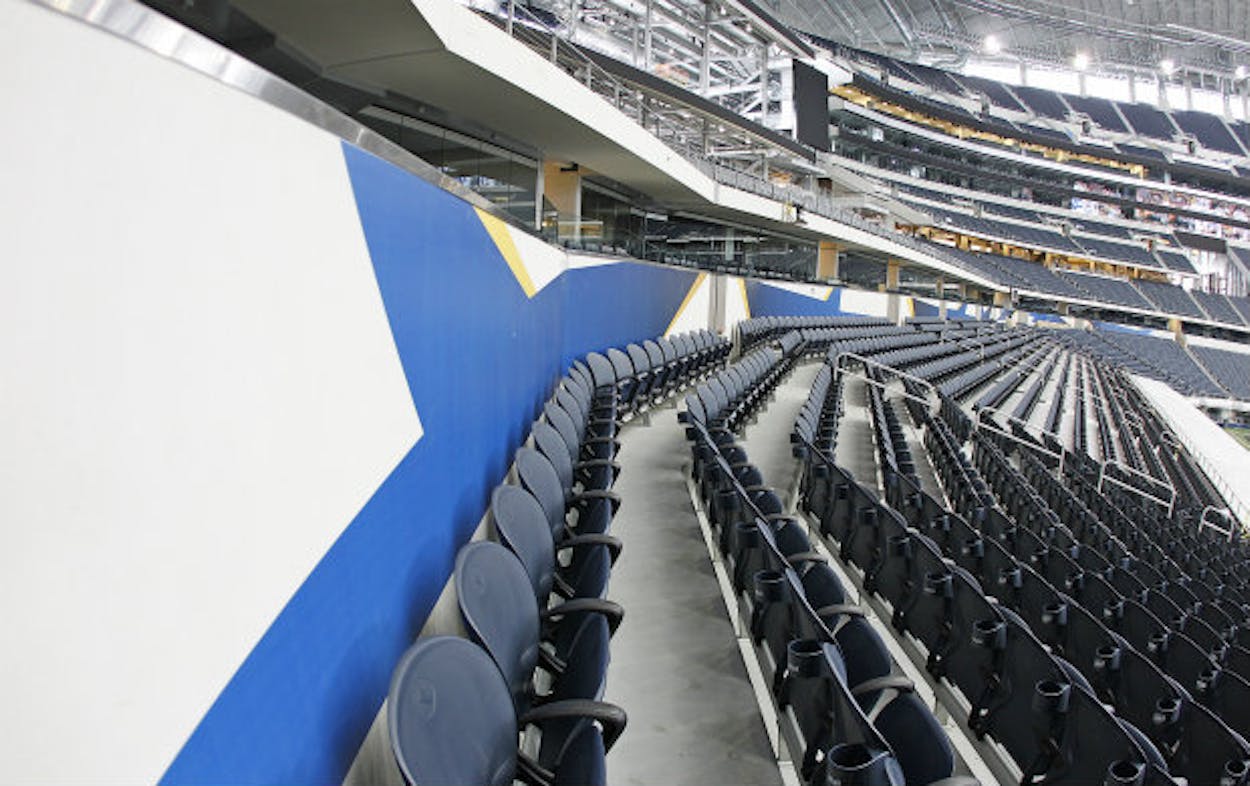The Texas economy is one of the most robust in the world. Wildly profitable companies and ingenious entrepreneurs call this state home, and what happens here influences businesses around the nation. Here’s a slice of the profits, losses, big deals, and backroom decisions happening across Texas this week.
Deals on Fields
A Bloomberg Businessweek article this week spotlights Cowboys Stadium as a case study of a multimillion-dollar stadium project financed by taxpayer money. The Cowboys — the most valuable NFL franchise in terms of revenue — are one of 21 pro football teams to play in a stadium funded using public dollars in the form of tax-free municipal bonds. The $1.2 billion stadium was heavily subsidized by the City of Arlington, and taxpayers are on the hook for about $65.3 million over 29 years.
The Bottom Line: Several anti-subsidy organizations rallied against Jerry Jones’s campaign to build Cowboys Stadium in Arlington in 2009, including groups called Jerry’s World and the No Jones Tax Coalition. Opponents referred to the project as “a use of government funds to subsidize activity that the private sector can finance on its own.”
I, Drillbot
Houston energy companies Apache Corp. and National Oilwell Varco Inc. are “working on technology to take humans out of the most repetitive, dangerous, and time-consuming parts of oil field work,” Bloomberg Businessweek reports. Apache is developing software that will “essentially allow the drill bit to think for itself” by automatically calibrating its settings based on communications with equipment on the surface. National Oilwell Varco uses a similar automated drill bit system, which is designed to help avoid damage from high temperatures, pressure and other adverse conditions.
The robot-driven systems are safer and more efficient than their traditional counterparts: Experts estimate that the technology could “cut in half the number of workers needed on an offshore rig and help complete jobs 25 percent faster.”
The Bottom Line: Energy companies aren’t the only ones in Houston taking an interest in robo-drilling. NASA has agreed to work with the Norwegian company Robotic Drilling Systems to share information about the technology it uses to remotely operate the Mars rover.
Empresarios Hope to Grow, Study Shows
A new University of Texas study highlights the challenges faced by Hispanic entrepreneurs as they attempt to grow their businesses. According to the report, although Hispanic employers opened twice as many businesses as the national average in the last decade, their companies are “generating lower revenue and employing fewer workers over time” than those with white employers. The study highlights the need for additional training opportunities, citing barriers to growth including “lack of management and leadership skills and the need for improved business relations and more effective communications.”
The Bottom Line: Education is an important value in the Hispanic business community: More than 75 percent of Hispanic entrepreneurs have had post-high school education, while the rate for Texas’ Hispanic population at large is just 34 percent.
Winner of the Week: Luby’s
Luby’s Inc. finished out its fiscal year with $324 million in restaurant sales and a 2.3 percent increase in sales at existing locations. The Associated Press reports that shares in the Houston-based company, which owns Luby’s Cafeteria, Fuddruckers and several other chains, were up 3 percent following Thursday’s announcement.
Loser of the Week: Kimberly-Clark
Dallas-based consumer products company Kimberly-Clark warned customers this week that a shipment of defective tampons has been stolen and resold to the public. According to Bloomberg Businessweek, the products had “failed final inspection and were sent to an outside company to be destroyed” but were intercepted along the way. The tampons may pose health risks if used, but so far no complaints have been filed.






